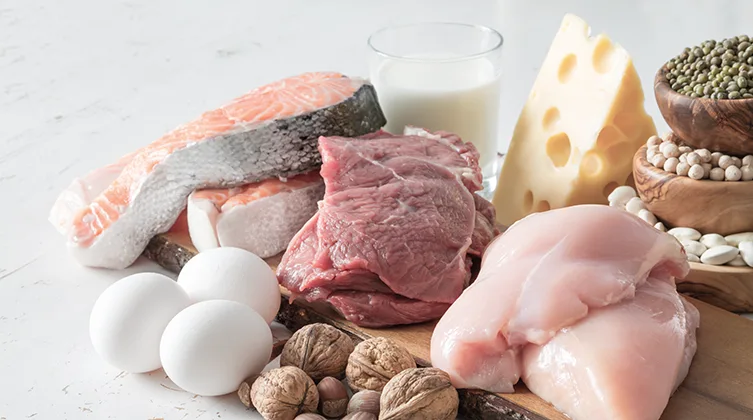When it comes to protein, are our needs often over-hyped? Don’t get me wrong. Protein is super-duper important and an extraordinarily fascinating class of macromolecules. However, the emphasis on protein, protein …and protein may be taken too far that we’re losing sight of the greater health picture.
Firstly, what is protein …actually?
Protein is a HUGE class of large molecules (=MACROmolecules). Protein is structural molecules, messengers, transport vehicles, energy creators, fluid balance regulators, enzymes, haemoglobin, antibodies, antigens…and so much more!
There are over 30,000 different types of proteins in the human body – about 3,000 of these have been studied.
All proteins are made of smaller pieces – or building blocks – called amino acids. There are 22 amino acids (some textbooks say 20) – 9 of these are considered essential. They’re essential amino acids (EAAs) because they MUST be acquired through the diet. The other non-essential amino acids can be made endogenously.
Hence, if you’re looking for a good protein powder you want it to contain all the EAAs.
Okay so protein is pretty useful – how much do I need to consume?
Everyone’s needs are unique. Protein requirements differ based on size, gender, activity levels and goals. For example, someone trying to reduce body fat mass may temporarily need to enhance their proportion of energy derived from protein. Whilst an elite athlete who is training multiple hours a day may require a lower proportion of protein than you would think! Mostly because they’re consuming a lot more food in general.
For most adults (elite athletes aside) the following computation can be used:
Women: 0.75 (g) x weight (kg) = recommended daily protein intake (g)
Men: 0.84 (g) x weight (kg) = recommended daily protein intake (g)
For older adults (>70), women who are pregnant or breastfeeding, and those training for muscle hypertrophy, protein needs will be slightly higher.
For most, eating a balanced diet is all you need to ensure an adequate intake of protein. True protein deficiency is extremely rare in Australia. However, if you are still concerned about your specific protein needs for your unique goals, you can always book a nutrition appointment here.





